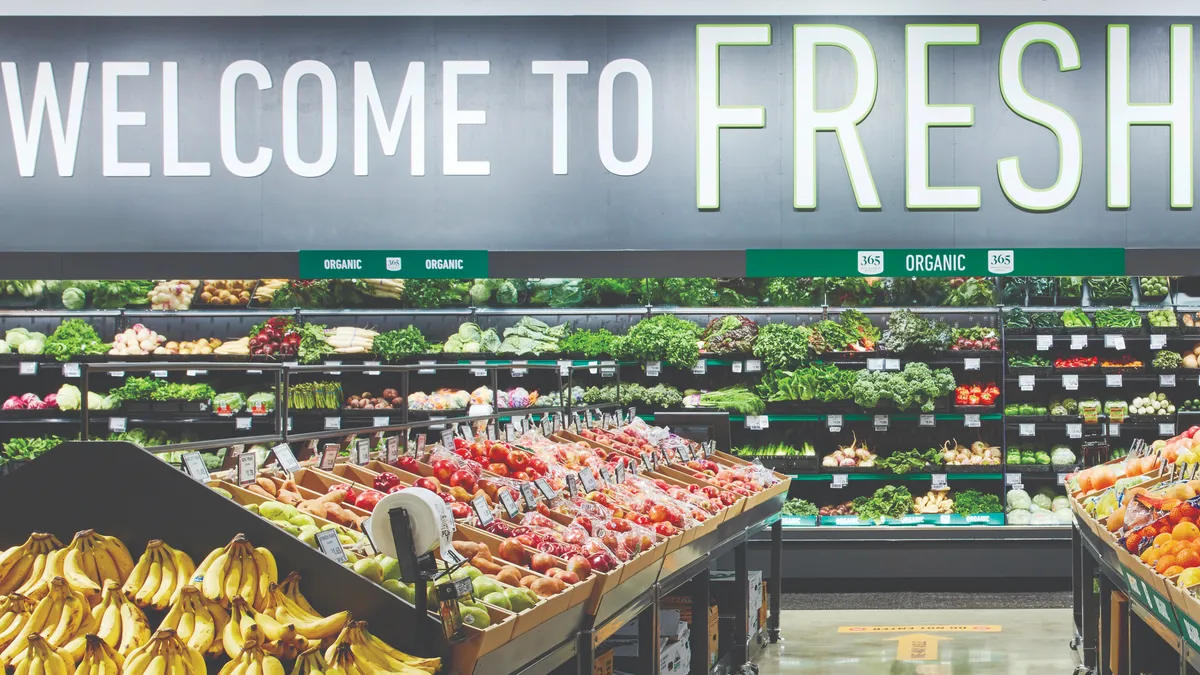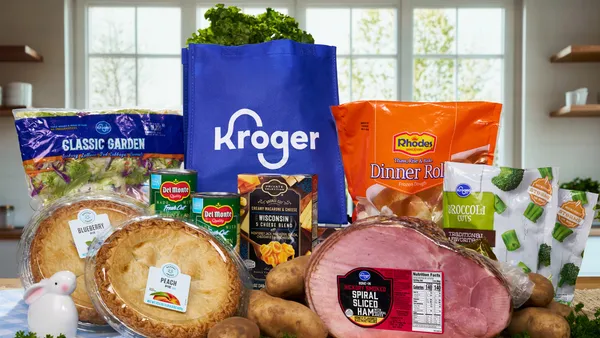Dive Brief:
- Amazon Fresh announced on Wednesday that its entire selection of national and private brand eggs in the U.S. are now cage-free, according to an emailed press release Wednesday.
- “Amazon Fresh made the decision to roll out cage-free commitment nationally as a response to animal welfare becoming an increasing priority to our customers and the industry,” John Farrell, chief merchant for Amazon Fresh, said in the announcement.
- This conversion to further prioritizing animal welfare follows the ongoing trend of grocers and retailers offering more sustainable options to customers.
Dive Insight:
Amazon Fresh’s initiative includes whole-shell and liquid eggs, both in-store and online, including from brands like Organic Valley, Vital Farms and Amazon’s private label Happy Belly. All eggs now meet third-party certification requirements from organizations such as Certified Humane and USDA Organic, according to the announcement.
In July, Amazon released a blog post on its website outlining how the company supports sustainable grocery practices in an effort to be “Earth’s most customer-centric company.” In the blog, Amazon outlines its efforts to ensure its private brands consist of cage-free eggs, making the addition of national brands an upgrade for Amazon Fresh.
Other sustainable efforts from the grocery include stocking only gestation crate-free pork by 2025 to its North American private brands; acquiring cocoa, tea and coffee that meets certified sustainability standards set by the Rainforest Alliance or Fairtrade International; and sustainably sourcing other products such as seafood, palm oil and paper goods. All these commitments are guaranteed for the company’s private label brands.
Kroger is another grocer that recently made a number of sustainable commitments, including a switch to carbon-neutral, cage-free eggs. Working with Kipster Farms, Kroger’s Simple Truth line is expected to launch the eggs in select stores by early 2023, according to the grocer’s recent ESG report. Other efforts stated in the grocer’s ESG progress report included more sustainable sourcing practices for products, expanding its plant-based items and updating packaging to make it more recyclable, compostable or reusable.
Cage-free egg production has been steadily increasing alongside consumer demand. According to a report published by The Human League Labs, around 23% of U.S. hens were raised in cage-free housing in 2020, up from just 3% in 2008.













